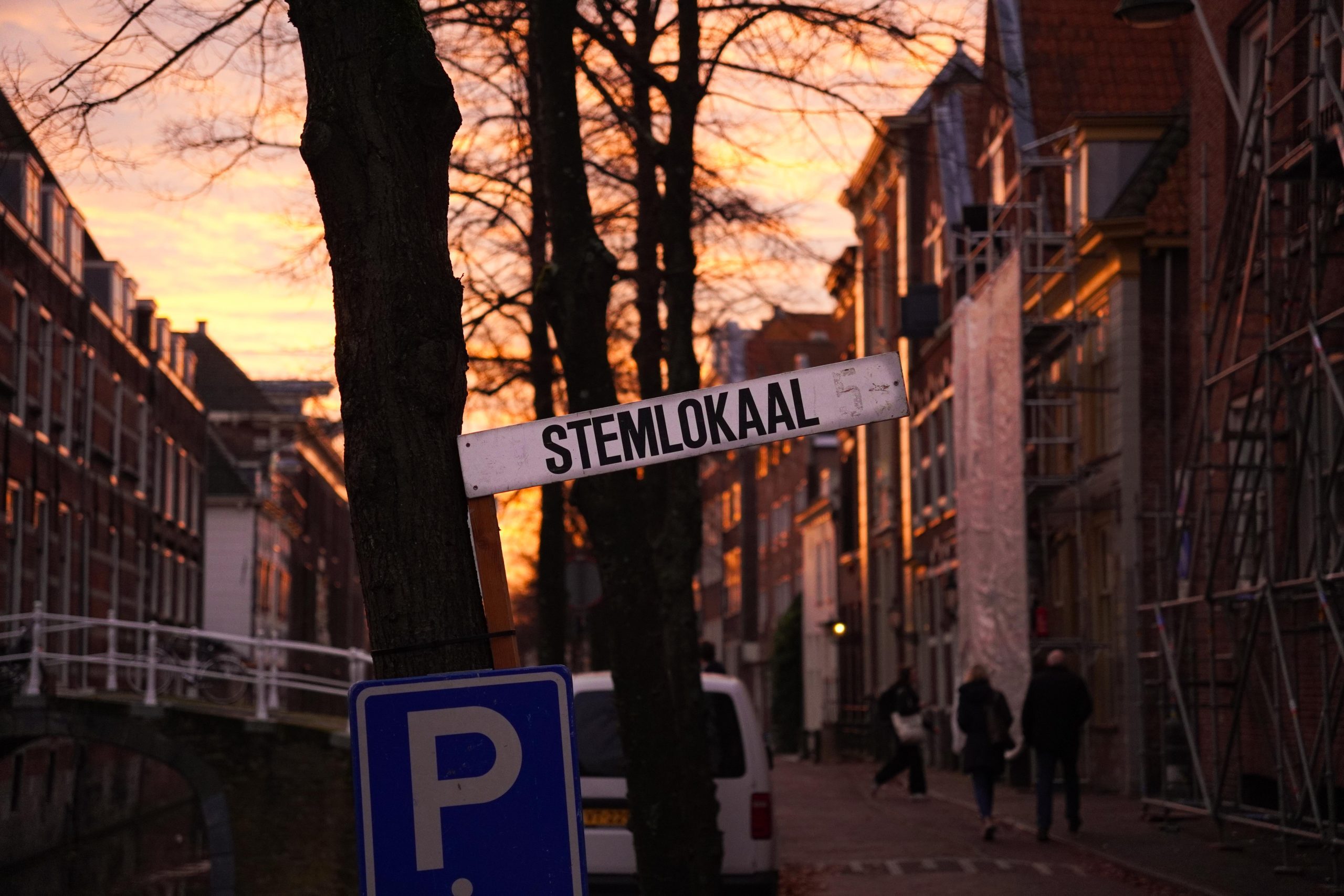In their reactions to the election results, higher education administrators point to the power of internationalisation and connection, among them the TU Delft Rector.
In Delft, not the PVV, but GroenLinks/PvdA became the largest party. (Photo: Thijs van Reeuwijk)
TU Delft Rector Magnificus Tim van der Hagen surmises in an intranet post that many TU Delft employees will ‘feeling uneasy’ because of the election results, now that PVV and NSC both won huge victories. That assumption may be correct: in Delft, it was not the PVV that became the largest, but GroenLinks/PvdA. This emerged earlier from Delta’s poll on the TU Delft community’s voting behaviour. Among staff and students in the poll, incidentally, far fewer votes went to PVV and NSC than in Delft as a whole.
‘A change in the political climate had been in the air for some time, as was evident in the recent political discussion about (limiting) internationalisation’, Van der Hagen writes. In mid-November, in the Dutch newspaper Volkskrant he wrote hat the Netherlands cannot afford to limit the intake of international students in technical studies, something that PVV and NSC do want.
Setting an example
Van der Hagen contrasts the ‘increasingly inward-looking mentality in parts of Dutch society’ with how he believes TU Delft has made mutual differences its strength. ‘After all, all those different perspectives, backgrounds and insights increase our brainpower and thus our opportunity to make a positive contribution to our common mission: creating impact for a better society. We will continue to do so unabated.’
‘You are and will remain very welcome here’
The Rector calls on the TU Delft community to ‘continue to set an example’, now ‘the election results and the upcoming coalition negotiations may fuel polarisation in Dutch society’. ‘At TU Delft, we do not exclude, but we seek to connect’, he writes. ‘Wherever you are from and whoever you voted for, you are and will remain very welcome here.’
Caspar Chorus, Dean of Industrial Design, has a similar message to his staff and students on LinkedIn. To his international contacts and prospective students he says that his Faculty will ‘continue to show how our open and international outlook leads to phenomenal benefits at the local and national levels as well’.
Henri Werij, Dean of Aerospace Engineering, wrote on LinkedIn: ‘We, staff and students, stand united, regardless of the country you come from, your religion, gender or preference. We need each other and together we will create the future, a better world for the generations to come.’
Not to be paralysed
Higher education administrators outside TU Delft are also reacting to the election results. For example, Vinod Subramaniam, Rector Magnificus of the University of Twente, writes that his community should not to let itself ‘be paralysed by [the] uncertain political perspective’. He signals that some political parties are proposing ‘far-reaching cuts in funding for education, science and innovation’. ‘Such choices are difficult to understand from a societal perspective’, he states.
‘Omtzigt is a smart guy, so he will understand’
Marcel Levi, Chair of the Dutch Research Council, seems to be gearing up for a lobbying campaign: “If they are going to form a coalition with VVD and NSC, we have to make sure we get the message across that knowledge and innovation are crucial for the country, for society and for the economy. Because there are some misunderstandings about that.”
Levi would then explain to politicians the difference between migrant workers and highly-skilled migrants, he says. In his role as NWO chair he has no views on migrant workers, but he certainly has an opinion on highly-skilled migrants. “They are also hugely important for companies, so if you value the economy, you have to take that into account.” He also believes that universities need researchers and lecturers from abroad.
Oversimplification of issues
He believes there is room for dialogue. “Omtzigt (the NSC leader, Eds.) is a smart guy, so he will understand”, expects Levi. “Election campaigns are often dominated by one-liners and oversimplification of issues. It’s much too complicated to say: I want these migrants, but I don’t want those. But I’m still optimistic that there is a real willingness on the part of the parties to recognise the importance of people who boost knowledge and innovation here. The facts speak for themselves.”
He also believes that there is room for debate about the large intake of international students and the importance of English-taught programmes. “International students should absolutely be welcome at technical universities; banning them would be an act of self-harm for the country. But I do wonder why we offer psychology degree programmes in English. What use is that to the Netherlands? That’s a good discussion to have. But you have to look at it sector by sector: do English-taught programmes add value to the country, yes or no? Simply saying, ‘We don’t want foreign students’ isn’t going to help.”
From diversity policies to climate research, the impact of the elections remains to be seen, but Levi believes it is a matter of calmly explaining why it is important. And a coalition agreement is still a long way off. “We don’t yet know who will come to power. We only know who will try to form a government first”, stresses Levi. “So let’s just wait and see.”
Delta, Saskia Bonger/HOP, Bas Belleman
Translation: Taalcentrum-VU



Comments are closed.